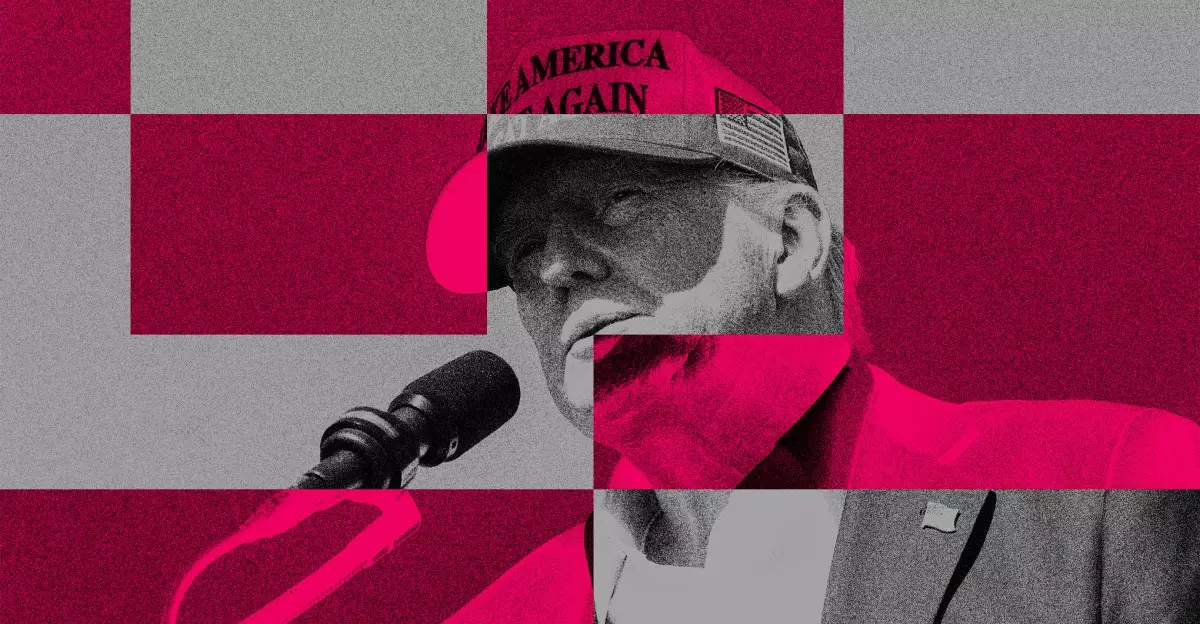In a surprising yet profoundly telling development, the Trump administration’s decision to establish an official TikTok presence signals more than just a superficial engagement with social media. It exemplifies a deliberate recalibration of political tactics in an era where digital influence is as vital as traditional power structures. While government agencies historically maintained a cautious distance from the very platforms they questioned or sought to ban, Trump’s move reveals an understanding that control over narrative and engagement can be a game-changer. By creating an account like @WhiteHouse, the administration not only sidesteps the complexities of the legal battle surrounding its ban but also subtly asserts authority within the digital landscape it once sought to dismantle.
This strategy exemplifies a broader pattern: leveraging entertainment platforms for political messaging, campaign momentum, and public relevance. Trump’s apparent agility in recognizing TikTok’s influence, despite its contentious origins related to Chinese technology, demonstrates a pragmatic approach. Instead of risking obsolescence or losing the cultural conversation, the administration seeks to harness TikTok’s viral potential to energize supporters, shape perceptions, and perhaps even test the boundaries of its legal stance. Such moves articulate a nuanced understanding that modern influence isn’t just wielded through legislation or traditional channels, but also through the cultural currency of viral content.
Susceptible to Contradictions and Self-Contradictions
Yet, this development is fraught with contradictions and reflects a complex, sometimes problematic, political calculus. On one hand, Trump’s administration publicly contemplates banning TikTok — citing concerns over national security, data privacy, and Chinese influence. On the other, the very presence on the platform, especially during an election cycle, betrays a recognition of TikTok’s effectiveness as a tool for mobilization and messaging. The creation of official accounts, including the recent debut of @WhiteHouse, showcases a willingness to adapt and exploit the platform’s reach, even as the rhetoric around banning it remains strong.
This hypocrisy underscores a broader failure of coherent policy: the inability (or unwillingness) to reconcile the ideological stance against Chinese tech with the pragmatic necessity of engaging with the platform’s audience. It also reveals a strategic gamble—one that assumes American users, especially MAGA supporters, prioritize political content they can relate to, rather than the fine points of national security debates. The administration’s actions suggest that, ultimately, in the digital age, influence and perception can outweigh traditional security concerns, especially if the target audience is already predisposed to favor the message.
Implications for Future Governance and Cultural Warfare
The implications extend beyond mere political posturing; they touch on the future of governance, information dissemination, and cultural dominance. By actively participating on TikTok, the Trump administration asserts that governmental influence is no longer solely dependent on conventional institutions but increasingly relies on digital emplacement. This strategy foreshadows a future in which political actors, whether foreign or domestic, will need to master the art of viral engagement to maintain relevance, sway public opinion, and project power.
Furthermore, the move underscores a shifting cultural landscape where platforms like TikTok have become battlegrounds for ideological influence. The contrast between the administration’s initial stance of aversion and its subsequent tactical embrace reveals a recognition that viral content shapes realities more convincingly than official statements or traditional media. As campaigns and administrations learn to weaponize the platform’s features—creating moments of spectacle that resonate emotionally—they are essentially participating in a form of cultural warfare that is more subtle, yet ultimately more effective, than conventional methods.
By creating their own TikTok accounts despite unresolved legal issues and ongoing battles over bans, political actors like Trump demonstrate a willingness to blur lines and challenge norms. They understand that in the digital age, the power to shape narratives often lies in the reach and relatability of content, rather than legal rulings or policy documents. It is a testament to how influence now hinges on adaptability, savvy, and an understanding that the internet’s viral machinery can redefine political authority itself.
In conclusion, Trump’s tactical engagement with TikTok illuminates a new frontier where political power is increasingly intertwined with digital culture. Whether this approach will yield concrete legislative or policy outcomes remains uncertain, but one thing is clear: the future belongs to those who can master the art of viral persuasion. Trump’s latest move underscores a broader truth—politics is no longer confined to traditional battlegrounds; it now plays out on platforms where influence is measured in likes, shares, and viral moments.

